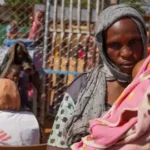In a significant escalation of diplomatic tensions, Algeria recently expelled several French officials, heightening an already strained relationship rooted in historical grievances, colonial legacies, and ongoing political controversies. As France grapples with its post-colonial identity, Algeria’s bold move reflects a culmination of frayed diplomatic ties, setting the stage for potential ramifications across North Africa and beyond.
The backdrop of these developing tensions is profound. Algeria’s struggle with its colonial past, specifically the brutal French occupation from 1830 to 1962, remains a vital aspect of its national consciousness. With Algeria gaining independence after a bloody war, deep-seated resentment towards France endures, deeply influencing contemporary relations. In the past few years, France’s attempts to address its colonial history have been met with skepticism in Algeria, further fueling animosity.
The immediate cause of the recent expulsions can be traced to remarks made by French President Emmanuel Macron in 2021, wherein he questioned the legitimacy of Algeria’s statehood, alluding to a “political-military system” that he claims was built on “the memory of the war.” These comments were perceived as a direct attack on Algerian sovereignty and have since strained bilateral relations further. Algeria summoned its ambassador to France, a clear indicator of its displeasure, and retaliatory actions soon followed.
The expulsions, though specific in nature, have broader implications. Algeria’s decision to remove French officials—some of whom were implicated in sensitive diplomatic engagements—signifies a rejection of what it perceives as continued neo-colonial behavior by France. Algerian authorities stated that a “majority of the expelled officials were involved in activities against our national interests,” although precise details on these activities remain undisclosed. This narrative plays into Algeria’s broader efforts to assert its autonomy on the international stage.
The reaction from France has been cautious. French Foreign Minister Catherine Colonna described the expulsions as “unfortunate,” emphasizing the importance of maintaining dialogue. However, France remains committed to addressing its colonial past and emphasizing cooperation with Algeria, particularly on issues such as security and counterterrorism in the Sahel region. The intertwined histories of both nations make dialogue essential, yet the road ahead appears fraught with obstacles.
In response to the escalating tensions, Algeria has sought to strengthen ties with other countries, particularly those who share similar post-colonial narratives. This includes a renewed focus on partnerships with emerging powers such as China and Russia, which may further alienate France and the West. Algeria’s efforts to become a regional leader in North Africa suggest a strategic pivot that may redefine the balance of power in the region.
The international community watches closely as these events unfold. Analysts express concern that further deterioration in relations could destabilize North Africa, a region already facing multiple challenges, from security threats to migration crises. Securing peace and collaboration in such a volatile environment is critical not just for Algeria and France but for the entire Mediterranean region.
As diplomatic tensions simmer, the Algerian government’s assertive stance toward France serves as a reminder of the lasting impact of colonial histories. The recent expulsions exemplify how unresolved historical grievances can resurface, complicating modern diplomatic relationships and international cooperation. The future of Algerian-French relations hinges on the dual efforts of addressing the dark shadows of the past and bypassing historical resentments to foster a more constructive dialogue.
In conclusion, the growing rift between Algeria and France encapsulates a complex interplay of history, politics, and national identity, necessitating careful navigation to avoid further escalation. As both nations attempt to chart their paths forward, the world watches, recognizing the potential implications for broader regional stability and international partnerships.
Email Us on editorial@nnafrica.com













